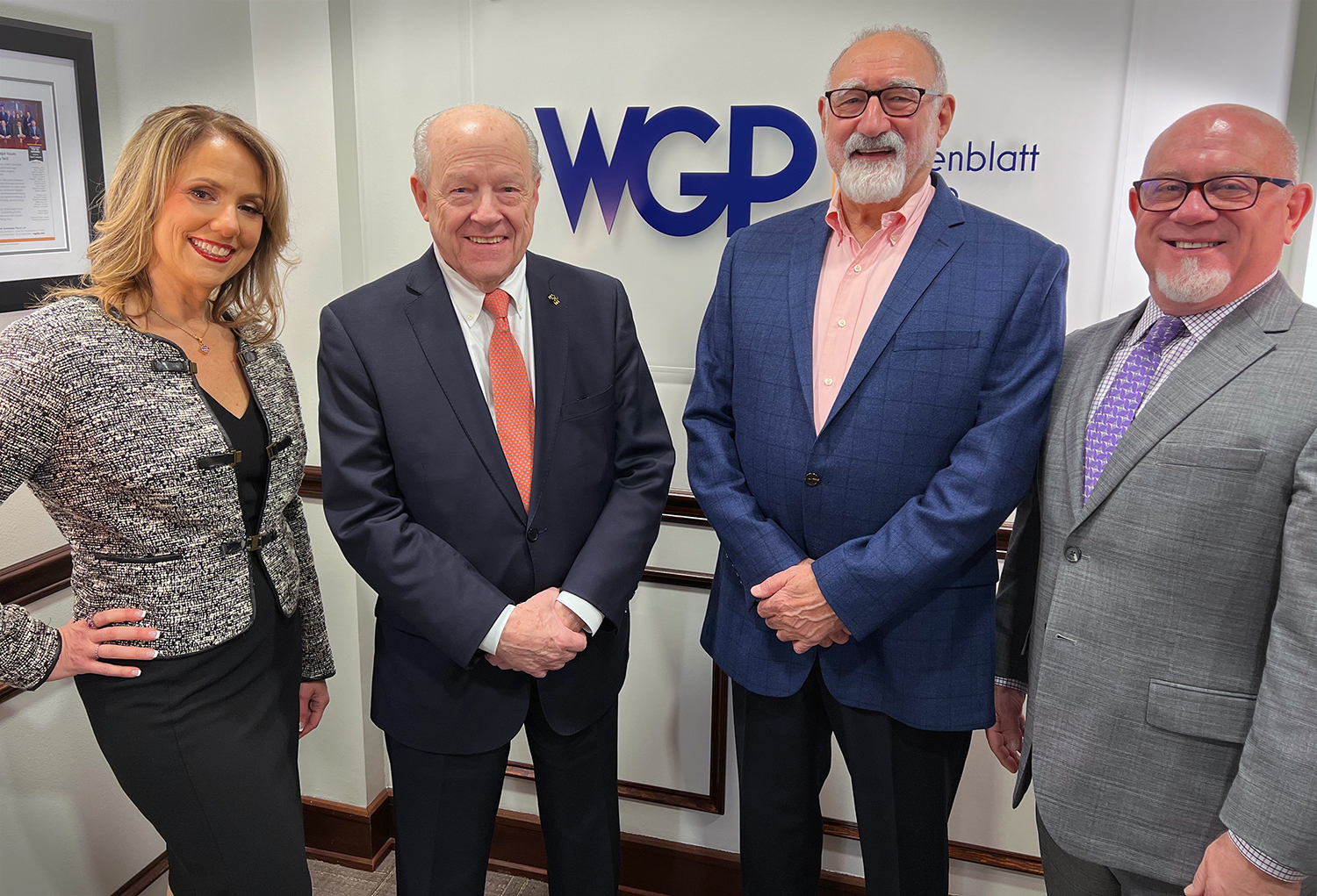By: devweb
By Peter F. Vaira, for the September 25, 2019 edition of The Legal Intelligencer newspaper
This is the first of a series on federal criminal discovery. This is a primer, not an exhaustive work, meant to give new practitioners to federal criminal practice an outline on the procedure. Criminal discovery still lags far behind the discovery available to both parties in a civil case. Many distinguished attorneys including Judge Billings Learned Hand, have been reluctant to provide a criminal defendant with much discovery. They believe that once the accused and his lawyer become aware of the prosecutor’s evidence, they will conjure a defense of perjured testimony and manufactured evidence. It is ironic that there is much more perjured testimony in everyday civil depositions than in criminal cases.
Today’s column will discuss Rule 16, and Rule 26.2, of the Federal Rules of Criminal Procedure, and the required production of material by the prosecutor required by Brady v. Maryland, 373 U.S. 83 (1963).
Rule 16 Federal Rules of Criminal Procedure
I will discuss Section 16 (a) (1) (E). It is important for counsel to be aware that Rule 16 requires that the defendant specifically request items subject to the rule. The government is under no obligation to produce items covered by Rule 16 without such a request. Once requested by the defense, the government must respond, and no further court order is necessary. The court will rule on contested requests and responses.
(E) Documents and Objects
This is the most important rule for federal criminal discovery and careful consideration should be given to making the requests. Upon the defendant’s request, the government must permit the defendant to inspect or copy books, papers, documents, data, photographs, tangible objects, buildings or places, if the items are material to preparing the defense, the government intends to use the item in its case in chief, or the item was obtained from or belongs to the defendant. This provision applies only to tangible items; they must exist, and the government cannot be directed to create them.
Material to the defense means significant for the defense to have or know about in preparing to defend against the government’s case in chief. Materiality is defined as relating to the guilt or innocence of the defendant, and credibility of government witnesses. It is not intended to be limited to documents or items the government may use at trial but should also include items that may be helpful or detrimental to the government’s case. “The language and the spirit of the rule are designed to provide a defendant, in the interest of fairness, the widest possible opportunity to inspect and receive such materials in the possession of the government as may aid him in presenting his side of the case,” see United States v. Poindexter, 727 F. Supp. 1470, (D.D.C. 1989). The rule is not limited to admissible documents. A document is material as long as it will play a material role in uncovering admissible evidence, aiding witness preparation, impeachment of witnesses or rebuttal,as in United States v. Lloyd, 992 F.2d 348. D.C. Circuit (1993). See Cary, Singer, Latcovich, “Federal Criminal Discovery,” American Bar Association, 2011.
The U.S. District Court for the Eastern District of Pennsylvania Local Criminal Rule 16.1 is particularly helpful. The rule requires counsel for the government and defense counsel to confer regarding discovery within seven days of the arraignment. At that conference, the government is obliged to either provide the discovery requested pursuant to Rule 16 or agree to produce it as soon as possible. If a discovery demand is refused, the government’s attorney must state in writing why disclosure is not proper. Parties are required to attempt to resolve the issues before submitting the matter to the court. The U.S. District Courts for the Middle and Western Districts of Pennsylvania do not have such a local rule.
Disparity Between Federal and State Practice
Practitioners should note that the extent of the pretrial discovery in the federal system is much more limited than in Pennsylvania state criminal practice. In state practice, the defendants, in the discretion of the court, may obtain the names and addresses of any eyewitnesses to the crime. Federal defendants are not entitled to any witness list at all, although any witness’ prior statements are available pursuant to Federal Criminal Rule 26.2 at the time the witness testifies, which is discussed below. See, Vaira, E.D. Pa. “Federal Practice Rules” (Gann), (2019); Comment on Local Rule 16.1.
Witness Statements Rule 26.2
Federal Rule of Criminal Procedure 26.2 pertains to producing prior statements of a witness who testifies at a prior trial or other criminal proceeding, including the grand jury. The rule provides that after a witness testifies in a criminal case, on motion of the party who did not call the witness, the court will order the party who called the witness to produce for examination any statement of the witness in possession of the attorney that relates to the subject matter of the witness’ testimony. The court may recess the proceedings to permit opposing counsel to examine the prior statement. Statement is defined as any statement the witness makes or signs or otherwise adopts, or any substantially verbatim statement of the witness’ oral testimony, including the witness’ prior grand jury testimony.
The most common prior statements are FBI Form 302 witness interview reports. These are rarely adopted by the witness, (most likely never seen by the witness) and are not verbatim. Despite this apparent failure to qualify as a prior statement to be produced, federal practice in all federal courts is that the Form 302s are turned over to the defense counsel. The major problem with this rule is the time for turnover. Technically, the prosecutor does not have to turn over the statement until the witness has completed his direct examination. The court has the authority to grant a recess while the attorney examines it; however, that is not a good practice. The attorney needs time to run down all the facts disclosed and all leads therefrom, to conduct a good cross examination. In many federal districts, prosecutors distribute such statements several weeks ahead of trial, but that practice varies with each U.S. Attorney’s Office, and often varies with individual assistant U.S. attorneys in the same office. Although the court cannot formerly order such statements turned over in advance of trial, many district court judges make it known, unofficially, that the statements should be turned over well in advance of trial. Early production is good procedure. It permits the defense attorneys to be prepared for a trial on the facts. Early turnover of government witness statements generally produces early guilty pleas when the defendant is finally faced with the evidence, and the court usually does not have to grant a lengthy recess before cross examination. As in most criminal cases, defense counsel should seek advice from practitioners who have appeared before the trial judge. Each has his own procedure, and a knowledge of the judge’s position will be a great help in dealing with the prosecutor.
‘Brady’ Material
The U.S. Supreme Court in Brady v. Maryland, 373 U.S. 83 (1963), set out a fundamental principle that in the criminal justice system in the United States the government must disclose information to the accused that is favorable either to guilt or punishment. Today’s column deals with Brady material which can influence sentencing. This application of the Brady principle is greatly overlooked by prosecutors, defense counsel, and the courts.
Ninety percent of the federal criminal cases filed result in guilty pleas. Of those that go to trial, 95% result in guilty findings. Thus, in the vast majority of the federal criminal cases, the sentencing process is crucial. The Brady test in the guilt or innocence phase is whether the failure to disclose the information “undermines confidence in the outcome of the trial,” see Kyles v. Whitley, 514 U.S. 419 (1995). In the sentencing process, I propose the issue should further include whether the withheld information could have affected the punishment awarded.
There is a division among the federal circuits whether the prosecutor should advise defense counsel of Brady material before the defendant enters a guilty plea. Regardless of the rule in the applicable circuit, I propose that immediately following a guilty plea, or soon after a finding of guilty at trial, the defense counsel should file a Brady motion regarding the issues at sentencing. A good practice would be for the trial court to order such a filing; however, the ethical responsibility is on the defense counsel.
The federal sentencing guidelines require an examination of the defendant’s conduct in various aspects. These include: the defendant’s role in the offense; was the defendant a leader of two or more accomplices, or was the defendant acting alone; was the crime a violation of his professional responsibility; how much was the actual loss to the victims, as opposed to the intended loss. Each of these findings can substantially affect the sentence. It is important to note that the burden of proof for the government on each of these is mere preponderance of the evidence. A document or a statement of an accomplice known to the prosecutor of the investigators could easily change the weight of the evidence in favor of the defendant on one or more component. I am aware that prosecutors usually state that they are aware of their continuing Brady responsibilities including evidence pertaining to sentencing. I suggest a formal filing by defense counsel on the specific elements required by the sentencing guidelines that will direct the prosecutor to reexamine the proof and force him to notify the investigative agents, who are usually more aware of various aspects of the evidence. I suggest that the Brady request filed by defense counsel regarding sentencing also be sent directly to the probation officer who will be very interested in the prosecutor’s response.
The obligation on the prosecutor, in the sentencing phase is more than the dictates of Brady. Rule 3.8. Pennsylvania Rules of Professional Conduct provides that “ … in connection with sentencing (the prosecutor) is to disclose to the defendant and the tribunal all mitigating information.” Rule 3.8 is applicable to federal prosecutors. This is much broader than the Brady test discussed above. Defense counsel should cite Rule 3.8 in the sentencing Brady request.
Peter F. Vaira is a member of Greenblatt Pierce Funt and Flores. He is a former U.S. attorney and the author of a book on Eastern District practice. He acts as a special hearing master for Pennsylvania courts and clients. He can be reached at p.vaira@gpfflaw.com.



